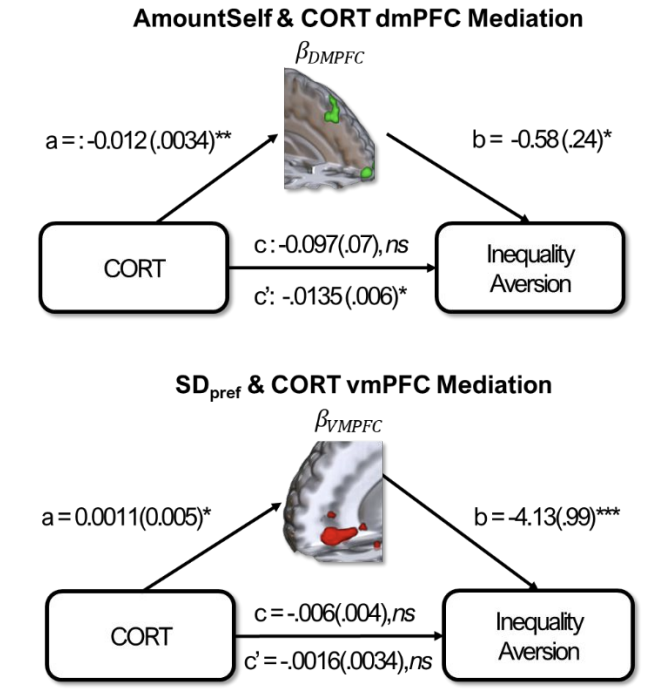KunIl Kim, Jeung-Hyun Lee, Woo-Young Ahn, & Hackjin Kim (2023). under review
Abstract
In this study, we provide behavioral, computational, and neuroimaging evidence that social stress enhances intuitive prosocial value processing while disrupting self-reward processing. When deciding monetary rewards for people of varying social distances, participants who showed elevated cortisol secretion after a social stress task were more likely to choose a disadvantageous inequal option. Neuroimaging data revealed that participants who were more likely to choose the disadvantageous inequal option exhibited an increase in the extent to which the ventral medial prefrontal cortex (mPFC) encoded other-regarding rewards, whereas the dorsal mPFC showed a decrease in encoding. Mediation analyses revealed that both the ventral and dorsal mPFC indirectly mediated the link between increased cortisol levels and the increased likelihood of choosing a disadvantageous inequal option. Furthermore, the results of effective connectivity analysis indicated that cortisol exerts an excitatory influence on the dorsal mPFC (dmPFC) via the ventral striatum (VS), while simultaneously sending inhibitory signals to the dorsal mPFC via the dorsal striatum (DS). These findings provide empirical evidence to help clarify the ambiguity regarding the effects of stress on prosocial decisions, indicating that social stress disrupts deliberative decision-making while simultaneously promoting intuitive prosocial motivation through the differential modulation of hierarchically organized cortico-striatal loops.
